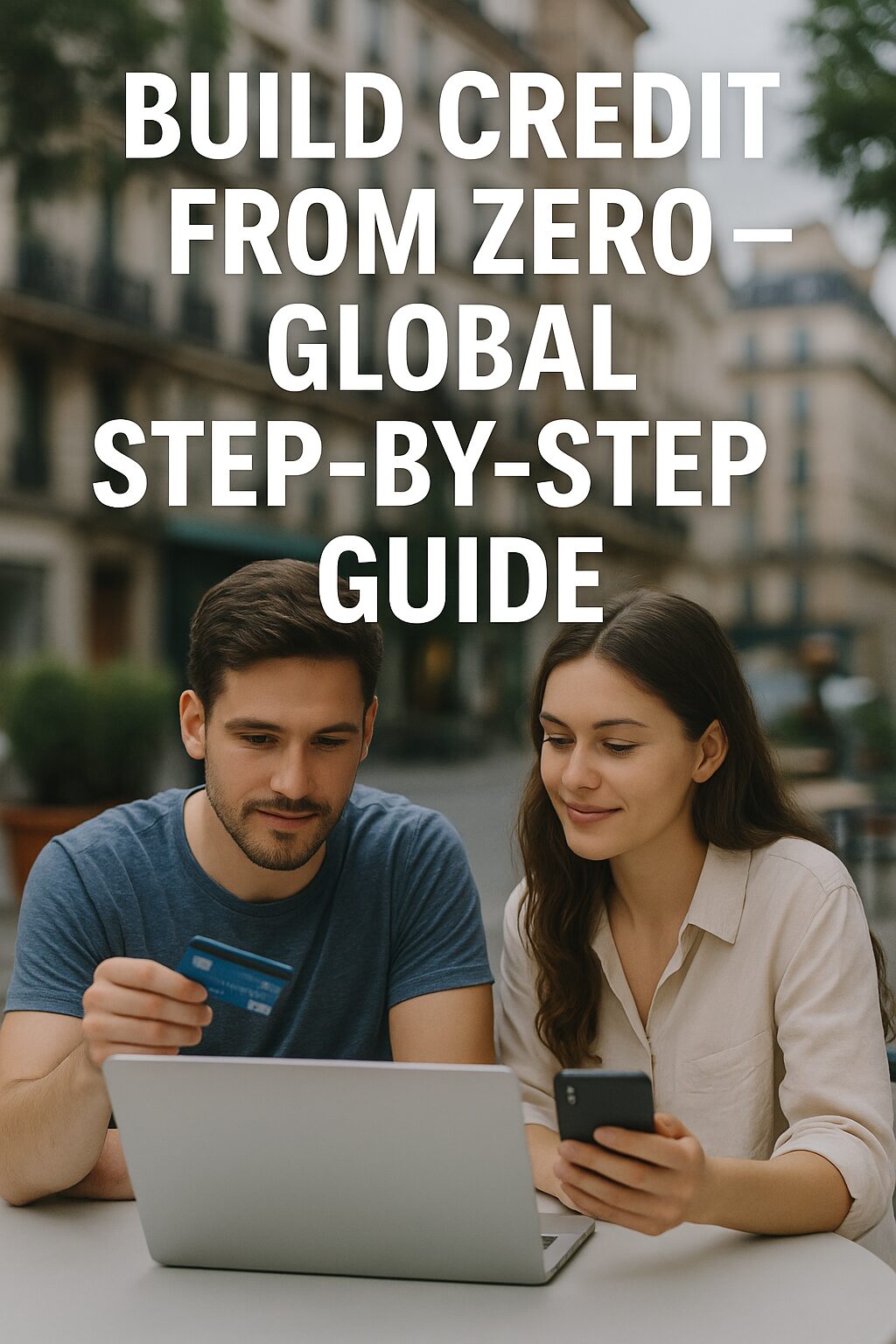Building credit from scratch is not just a financial task—it’s a life skill that determines your future opportunities.
Whether you’re starting in the U.S., the U.K., Korea, or Southeast Asia, your journey begins with understanding how credit works, what affects your score, and what actions you can take immediately.
In this guide, we explore practical steps backed by real-world examples to help you move from no credit to good credit, all within 12 months.
1. Global Credit: Same Logic, Different Systems
In the U.S., the FICO score dominates. In the U.K., it’s Experian and Equifax.
In Korea, it’s KCB and NICE. In Southeast Asia, many countries still rely on bank account history or mobile phone data.
But no matter where you are, the logic is the same: Credit = Trust + Time + Responsibility.
No one gets a great credit score overnight. It’s built by proving that you are reliable.
2. Real Case: Building Credit in the U.S. as an Immigrant
Jae, a 23-year-old who moved to the U.S. from Korea, started with no credit.
After getting a Social Security Number, he applied for a Discover It Secured Card.
He deposited $300, used only $50 per month, and paid it off fully.
After six months, he was upgraded to an unsecured Capital One Quicksilver card with no annual fee.
His credit score grew from no file to 715 in less than a year.
3. Real Case: Building Credit in Korea Without a Job
Soojin, a 28-year-old freelancer in Seoul, had no traditional credit history.
She downloaded Kakao Bank’s credit management tool, which connected with KCB.
By paying her rent and phone bills on time and avoiding any late payments, her score rose from 0 to 784 in 10 months.
She later qualified for a small business loan with favorable interest.
4. 5 Global Strategies to Build Credit from Zero
- Get a Secured Credit Card: Deposit $200~$500 and use under 30% of the limit.
- Become an Authorized User: Join a family member’s or spouse’s card to inherit their good credit history.
- Use Rent Reporting Services: In the U.S., U.K., and parts of Asia, tools like CreditLadder or Experian Boost allow rent or utilities to count.
- Try Alternative Tools: Apps like Self in the U.S. or Toss in Korea help users build “thin file” credit histories.
- Don’t Overapply: Avoid applying for too many cards. Each hard inquiry drops your score slightly.
5. Mistakes That Kill Your Score Early
- Carrying balance and paying minimums (use auto-pay for full payments)
- Maxing out your cards
- Closing your oldest credit account
- Missing payments (even small subscriptions)
- Applying for 4+ cards in a year
6. No Score to Good Score – A 12-Month Simulation
| Month | Action | Result |
|---|---|---|
| 1 | Apply for secured card | Start file |
| 2-3 | Use 10–20% credit | Score begins building |
| 4 | Add rent reporting | History strengthens |
| 6 | Authorized user added | Jump in score |
| 9 | Auto loan or utility bill added | Mixed credit types |
| 12 | Upgrade card & credit limit | Score likely 700+ |
This is a proven path—done by thousands.
7. Best Global Tools to Monitor & Build Credit
- U.S.: Credit Karma, Self, Experian Boost
- U.K.: ClearScore, CreditLadder
- Korea: Toss 신용점수관리, 카카오뱅크 신용조회
- SE Asia: Kredit Pintar (Indonesia), TrustingSocial (Vietnam)
Check them monthly. You don’t need to pay to see your progress.
Final Thought
Your credit is not a number—it’s a story.
A story about your habits, your timing, and your trustworthiness.
Start small, stay consistent, avoid traps, and let time do its job.
In a year, you’ll thank yourself.
